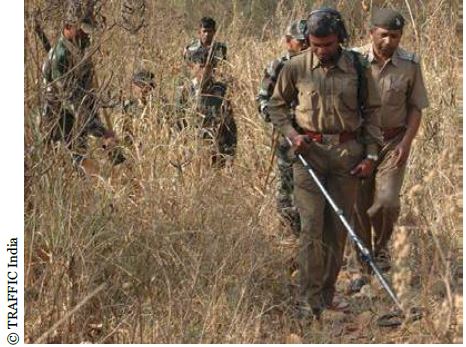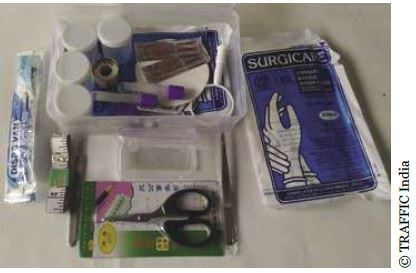Stopping the illegal wildlife trade is one of the most important and urgent parts of our work to protect iconic and threatened wildlife.
Ranked as the 4th largest illegal trade globally, it is a huge international crime – worth over an estimated £15 billion annually. This trade includes a diverse range of wildlife products and body parts. Run by notorious contrabands, including poachers and smugglers, wild animals are mercilessly poached and siphoned off to meet high market demands.
Poaching wildlife also puts the biodiversity at immense risk, ultimately leading to an unbalanced food chain - threatening all forms of life. It does not end there; the illegal wildlife trade is one of the key global drivers of rising pandemics too – bringing humans in close contact with wildlife.
SAY NO TO ILLEGAL WILDLIFE TRADE!
In collaboration with TRAFFIC India, we are working round the clock to end this heinous and illicit trade.

Being one of the most prominent biodiversity hotspots, India has been a target of wildlife poachers and smugglers. It is essential to use best enforcement practices to tackle this issue
– and using sniffer dogs for wildlife crime detection and prevention has proved beneficial.
-Approximately 500 successful wildlife seizures are reported to have been assisted by super sniffers
- 20 states have deployed these dog squads and are already benefiting from it.
- For the first time, two wildlife sniffer dog squads have also been deployed by the Railways Protection Force (RPF) - Northern and Eastern zone.
.

Tiger Reserves and National Parks use deep search metal detectors to locate wire snares and metal traps set by poachers as deep as three feet underground to trap wild animals. These robust devices are simple to assemble and do not require much maintenance. -Over the years, TRAFFIC India has provided over 58 metal detectors to several forest departments across the country.

Lack of evidence against wildlife traffickers often leads to low conviction rates. These field kits help gather evidence to support our efforts to end illegal wildlife trade. TRAFFIC India provides these kits to the forest fepartment to collect evidence from the scene where an animal is poached. The field kit helps the Forest Department staff collect samples in a standardised manner, as proper sample collection is essential for precise analysis when an animal is poached.
-90 field kits had been provided to various State Forest Departments in 2017.